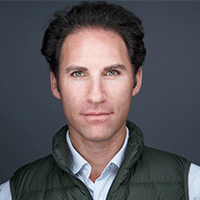 Michael B. Greenwald, Former US Treasury Senior Official, US Department of The Treasury; Adjunct Professor, Columbia University
Michael B. Greenwald, Former US Treasury Senior Official, US Department of The Treasury; Adjunct Professor, Columbia University
Michael B. Greenwald is a thought leader on the future of money and fintech innovation as well as a former U.S. financial diplomat, professor, and author with over 15 years of experience in finance, corporate and family office strategy, public policy, intelligence, and diplomacy. Michael is a senior executive at Amazon Web Services (AWS) serving as its Global Lead for Digital Assets. He leads U.S. and global strategy for Amazon on integrating cloud systems into public sector institutions and government agencies to manage Central Bank Digital Currencies, digital assets, blockchain technology, and NFTs. He leads an AWS Digital Asset and Future of Money Task Force composed of the leaders in the digital currency space including Circle, CoinBase, Chainalysis, TRM Labs, and Elliptic to provide thought leadership and education for the highest levels of the U.S. Government, law enforcement, regulators, and private industry.
Read more
Michael has served at the highest levels of the U.S. Government: he spent almost a decade of his life in the public sector working for the United States Treasury Department culminating with his position as America’s first and most senior Treasury diplomat to Qatar and Kuwait. In this role he acted as principal liaison to each nation’s banking sectors, finance ministries, and sovereign wealth funds while serving under two presidential administrations and three treasury secretaries. Prior, he held senior policy, legal, counterterrorism and intelligence roles requiring travel to over 20 countries including North Africa, Europe, Asia and was on the Treasury/State Department team that visited Ukraine in 2014 following the annexation of Crimea to craft sanctions against Russia. He has written for the Presidents Daily Brief and was part of the Treasury teams that crafted sanctions against Iran, North Korea, Libya, ISIS, and Al-Qaeda.
After departing Treasury, he used overseas experiences and knowledge of international and monetary policy to help lead the domestic and international growth of a global multi-family office Tiedemann Advisors. Michael helped oversee the firm’s growth from $12 billion in assets to over $30 billion. He was also named the firm’s first Director for Digital Asset Education providing education to families and strategy to the firm’s investment team on issues related to blockchain technology.
Michael is currently an Adjunct Professor at Columbia University School of International and Public Affairs (SIPA) leading a digital asset capstone program, a senior fellow at the Atlantic Council Geoeconomics Center and senior advisor to its President and CEO Fred Kempe, and an adjunct senior fellow at the Center for New American Security. Michael is Deputy Director at the Trilateral Commission leading the David Rockefeller Fellows Program, member of the Bretton Woods Committee, and member of the Wilson Center Digital Assets Taskforce. He previously served as an Adjunct Professor at Boston University Pardee School of International Relations teaching its first course on counter-terrorist financing and the new emerging economy in the Middle East.
As a former fellow at Harvard Kennedy School’s Belfer Center for Science and International Affairs, he published over 50 articles at Harvard on the U.S. dollar, geopolitics, the contemporary art market, and the future of money. He has also been featured in Wall Street Journal, New York Times, Barron’s, Financial Times, Associated Press, and on CNBC.
His philanthropic work has included chairing the U.S. Holocaust Memorial Museum’s Next Generation Board, serving as the Vice Chairman of the board for the Promise Fund of Florida with U.S. Ambassador Nancy Brinker, and, in conjunction with Palm Beach Synagogue, helping launch an annual event in Palm Beach on countering antisemitism. He previously served on the Board of Susan G. Komen, was a senior advisor to Dana Farber President and CEO Dr. Laurie Glimcher, and was member of Boston University School of Law Dean’s Advisory Board.
He holds a Juris Doctor from Boston University, a Master’s from Boston University’s Frederick S. Pardee School of Global Studies, and a Bachelor of Arts in History from George Washington University. Raised in Brookline, Massachusetts, he now lives in Palm Beach, Florida with his wife. He served on the Board of The Town of Palm Beach Investment Committee and was honored by Palm Beach Illustrated as one of the city’s 100 most influential business leaders.
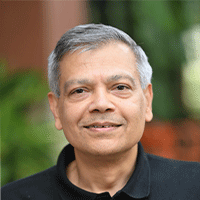 Prasad Joshi, Senior Vice President, Center for Emerging Technology Solutions (iCETS), Infosys.
Prasad Joshi, Senior Vice President, Center for Emerging Technology Solutions (iCETS), Infosys.
Prasad Joshi leads Infosys Center for Emerging Technology Solutions (iCETS). iCETS is the key unit within Infosys, responsible for building expertise in emerging technologies and contextualizing them to create business solutions for Infosys clients. Prasad has been instrumental in building the strategic ‘Living Labs’ program at iCETS, and through it has setup co-creation labs with key clients.
His portfolio focus includes AI and Cognitive Solutions, Blockchain, Design and Experience, AR-VR, and Cyber Security and Data Management. Under Prasad’s leadership iCETS has created products for Live Enterprise Application Management (LEAP), Cyber Security (Cyber Next), Digital Customer Service (Infosys Cortex), Conversational Interfaces, data privacy, enterprise gamification, and location based solutions among other areas. As part of global charter, he leads the creation of startup ecosystems and academia relationships.
 Amanda Licastro, Emerging & Digital Literacy Instructional Designer, Penn Libraries, University of Pennsylvania
Amanda Licastro, Emerging & Digital Literacy Instructional Designer, Penn Libraries, University of Pennsylvania
Dr. Amanda Licastro is responsible for providing instructional design support around emerging technology and digital literacies. She works closely with staff in WIC, the Education Commons, Vitale Digital Media Lab and Hechtman Recording Studio in collaboration with other Library units and campus partners to ensure success of the critical literacies initiative.
Amanda was formerly the Assistant Professor of Digital Rhetoric at Stevenson University in Maryland. Her research explores the intersection of technology and writing, including book history, dystopian literature, and digital humanities, with a focus on multimodal composition and Extended Reality. Amanda serves as the Director of Pedagogical Initiatives of the Book Traces project and is co-founder of the Journal of Interactive Technology and Pedagogy and the Writing Studies Tree. Publications include articles in Kairos, Digital Pedagogy in the Humanities, Hybrid Pedagogy, and Communication Design Quarterly, as well as chapters in Digital Reading and Writing in Composition Studies, and Critical Digital Pedagogy. Her co-edited collection, Composition and Big Data, is in production from University of Pittsburgh Press. The grant-funded project on Virtual Reality Amanda developed and executed was awarded the Paul Fortier Prize at the 2017 Digital Humanities conference, and has been featured in the Baltimore Sun and Baltimore Magazine.
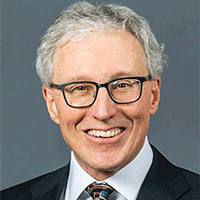 John Paul MacDuffie, Director, Mack Institute Program on Vehicle and Mobility Innovation; Professor of Management, The Wharton School
John Paul MacDuffie, Director, Mack Institute Program on Vehicle and Mobility Innovation; Professor of Management, The Wharton School
John Paul MacDuffie is Professor of Management at the Wharton School and Director of the Program on Vehicle and Mobility Innovation (PVMI) at Wharton’s Mack Institute for Innovation Management. PVMI carries on the work of the International Motor Vehicle Program (IMVP), the research network founded at M.I.T. to study the challenges facing the global automotive industry, which Professor MacDuffie co-directed from 2001-2012. He received his B.A. degree from Harvard University and his PhD degree from the Sloan School of Management at M.I.T. His global research on the determinants of high-performance manufacturing is featured centrally in the books The Machine That Changed the World and After Lean Production: Evolving Employment Practices in the World Auto Industry. He is a founding board member of the Industry Studies Association and a member of the Automotive Experts Group at the Federal Reserve Bank.




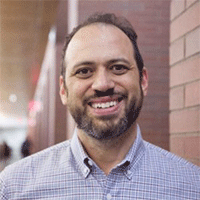 Ethan Mollick, Academic Director, Wharton Interactive; Professor of Management, The Wharton School
Ethan Mollick, Academic Director, Wharton Interactive; Professor of Management, The Wharton School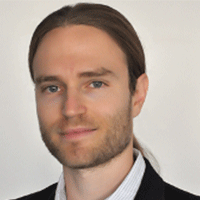 Yaad Oren, Head of SAP Innovation Center Network
Yaad Oren, Head of SAP Innovation Center Network Kirthika Parmeswaran, Founder & CEO, Vital Start Health
Kirthika Parmeswaran, Founder & CEO, Vital Start Health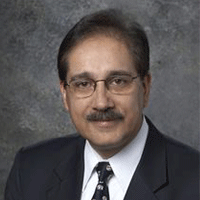 Harbir Singh, Co-director, Mack Institute; Mack Professor of Management, The Wharton School; Faculty Director, Huntsman Program
Harbir Singh, Co-director, Mack Institute; Mack Professor of Management, The Wharton School; Faculty Director, Huntsman Program David B. Treat, Senior Managing Director, Accenture
David B. Treat, Senior Managing Director, Accenture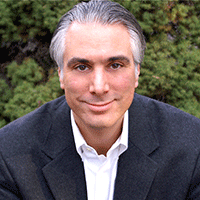 Kevin Werbach, Liem Sioe Liong/First Pacific Company Professor and Chair, Legal Studies and Business Ethics, The Wharton School
Kevin Werbach, Liem Sioe Liong/First Pacific Company Professor and Chair, Legal Studies and Business Ethics, The Wharton School Valery Yakubovich, Executive Director, Mack Institute for Innovation Management
Valery Yakubovich, Executive Director, Mack Institute for Innovation Management